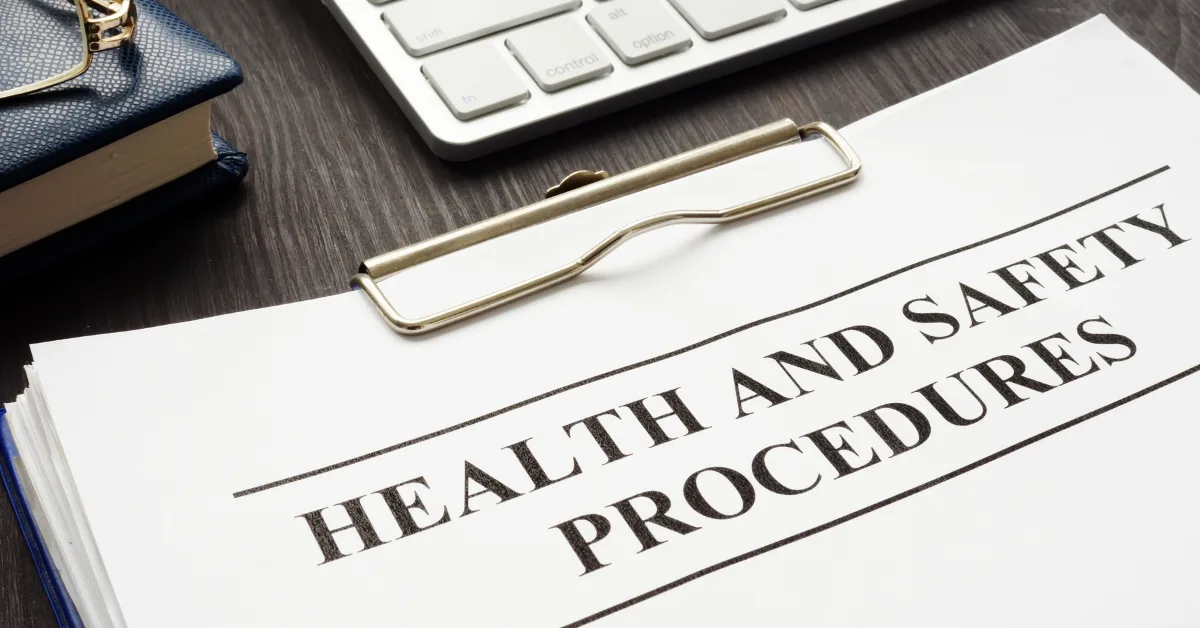
What Is the Health and Safety at Work Act?
The Health and Safety at Work etc. Act 1974 (often abbreviated to HSWA or HaSWA) is the cornerstone of health and safety legislation in the UK. It sets out the legal framework to ensure the welfare, health, and safety of employees and others affected by work activities. Whether you’re an employer, employee, landlord, or contractor, understanding this Act is key to staying compliant and creating a safe working environment.
The Origins of the Act
The roots of the HSWA can be traced back to the landmark legal case of English v Wilsons & Clyde Coal Co Ltd (1938), which involved an accident in a coal mine. The judgment established that employers have a duty to provide a safe system of work, competent supervision, and suitable equipment. These principles later formed the foundation of Section 2 of the Health and Safety at Work Act, formally enshrining them into UK law.
What Does HaSWA Do?
The Act provides a legal duty for all those who can impact workplace health and safety to take reasonable steps to prevent harm. It applies to nearly every workplace in the UK and lays the groundwork for all subsequent health and safety regulations.
The Act is enforced by the Health and Safety Executive (HSE) and local authorities.
Who Does It Apply To?
• Employers (regardless of size)
• Employees
• Self-employed individuals
• Contractors/Subcontractors
• Anyone in control of premises or plant
• Landlords and property managers (under Section 4, where they have control over the condition or maintenance of a workplace)
This makes the HSWA unique in scope — even individuals or organisations who aren’t directly employing staff, but control a site or building, can still have duties under the law.
Core Duties Under the HSWA
Employers must (Section 2):
• Provide and maintain safe plant and systems of work
• Maintain safe access and egress to the workplace
• Ensure equipment is safe and properly maintained
• Conduct risk assessments
• Provide training, information, and supervision
Employees must (Section 7):
• Take reasonable care of their own health and safety
• Not endanger others through their actions or omissions
• Cooperate with their employer’s safety arrangements
Those in control of premises (Section 4):
• Ensure premises and equipment provided for use are safe
• Manage risks to people not employed by them
Legal Implications and Penalties
• Failure to comply with HASWA can lead to enforcement action by the HSE, including Improvement Notices, Prohibition Notices, or prosecution.
• Fines can be unlimited, and responsible persons can face custodial sentences.
• The Act is generally statute barred in civil cases meaning it is primarily used in criminal court proceedings, not for civil claims. Civil actions are typically brought under tort law (e.g. negligence).
It’s also important to note that any person, including employees, can be personally prosecuted under Section 7 of the HSWA if they fail to take reasonable care for health and safety or interfere with safety provisions.
Common Misconceptions
• “It only applies to large companies” — False. It applies to all businesses, regardless of size.
• “It doesn’t apply to landlords or non-employers” — False. Section 4 covers those in control of premises.
• “It’s outdated and irrelevant” — False. The Act adapts to the changing nature of work.
Why It Still Matters Today
The Act may have been passed in 1974, but it’s more relevant than ever. Workplaces have evolved, with fewer high-risk environments like mines and more offices, logistics, and remote working setups. Yet the HSWA remains adaptable.
In the 1970s, the UK saw around 2,000 workplace deaths per year. Today, thanks in part to this legislation, that figure is below 150 per year. The HSWA is not a prescriptive checklist, it demands that businesses meet the expected standard of the time, which naturally evolves as industry practices, technology, and expectations shift.
Related Regulations and Guidance
The HSWA underpins most UK health and safety law, including:
• The Management of Health and Safety at Work Regulations 1999
• COSHH (Control of Substances Hazardous to Health)
• RIDDOR (Reporting of Injuries, Diseases and Dangerous Occurrences Regulations)
• PUWER (Provision and Use of Work Equipment Regulations)
• LOLER (Lifting Operations and Lifting Equipment Regulations)
• The Six Pack Regulations (introduced via EU legislation, closely linked to HSWA duties)
FAQs
Q: Do I need a written health and safety policy because of the HSWA?
A: Yes — if you have five or more employees, you must have a written policy.
Q: Does HSWA apply to hybrid or remote workers?
A: Yes. Employers have a duty of care, including for home-based or remote workers.
Q: Is the HSWA the same as HSE?
A: No. HSWA is the law. HSE is the regulator that enforces the law.
Q: Can I be prosecuted under the HSWA even if no one was hurt?
A: Yes. The law allows enforcement for risk of harm, not just actual incidents.
Q: Can I be personally prosecuted under the Act?
A: Yes. This applies not just to directors and managers, but to any employee under Section 7 if they fail in their legal duties.
Need Help Staying Compliant?
Our featured health and safety consultants can help you meet your legal duties under the HSWA. Whether you need a policy, risk assessments, or training — we can connect you to verified professionals.



